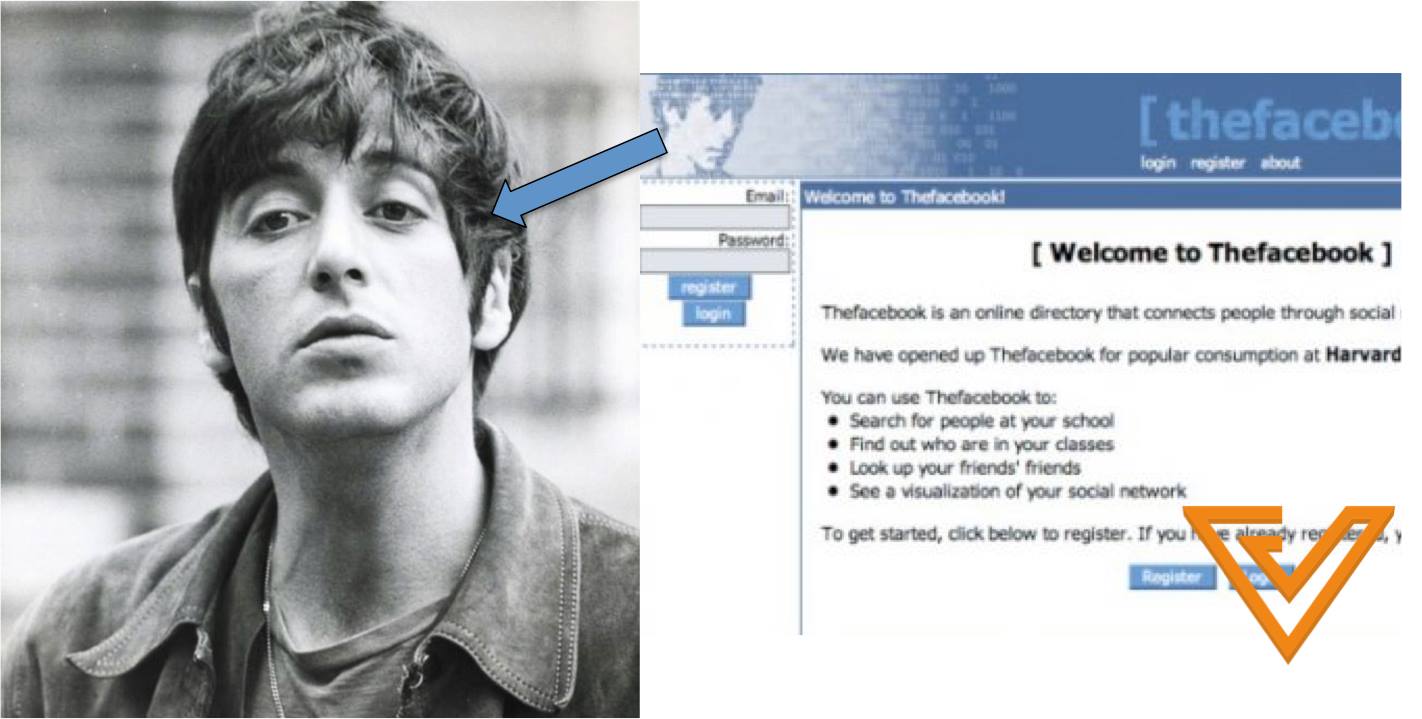Facebook celebrated its 11th birthday on Wednesday, so here are some #ThrowbackThursday recounts of the good and bad of Facebook.
2004: The first face on Facebook
Al Pacino, the familiar mobster in the Godfather trilogy, graced the cover of Facebook when it was first established in 2004. We can only say that Mark Zuckerberg was a big movie buff.
If you’ve watched The Social Network, you would know that Mark Zuckerberg had intended for his baby to be exclusive only to the head honchos of Harvard University.
2005: Join the club
Facebook opened its doors to other prestigious universities in the States, and made more connections to parties. Throughout the year, Facebook gradually started to invite a select few high schools into the club.
If Facebook were to revert their interface to that of 2005 today, you’d probably think the site had been hacked. But in 2005, everyone found it refreshing to the eyes, compared to MySpace.
2006: Status update
Facebook introduced a version of the site that came close to the Facebook we all know today. There were status bars, news feeds, mini-feeds, the “share” function, and you would have to click on your friends’ profiles to view them. Facebook was moving closer towards building a networked community, rather than merely an accumulation of individuals.
2007: Perks on your profile
Facebook threw in additional apps that synced music, mobile apps and Facebook apps. They also dropped the “The” from its name, and retired our pal Al from the site.
2008: Facelift for Facebook
By now, Facebook had built itself an empire, and it took the plunge to clean up its layout. One of the site’s best features — the Facebook chat — was also launched, and users said hello to personal space. Private issues could be discussed with close friends, without the world knowing about them too.
But one of the biggest changes that set people reeling was the shift of the notifications bar to the right. Users could toggle between the old and new look, and give feedback to Facebook about the layout. Still, some users complained and threatened to quit their accounts permanently.
2009 – 2010: Streamline notifications
Facebook reverted to the three column interface to include a “Highlights” bar, which helped weed out that random friend’s album of selfies from the updates you really want to know about. Users were once again disoriented at the change but hey, life goes on on Facebook.
The only big difference that was introduced in late 2010 was the enlarged feature of your photos on your profile.
2011 – 2012: The Ticker and Timeline
Now this change I remember. It was one of the most drastic, and therefore most annoying things introduced on Facebook. Old status updates were harder to search for, with only the most salient of status updates appearing.
People were upset over how difficult it made stalking someone else on Facebook, and disoriented people complained about the multiple interface changes. But as always, the commotion died down after people realised the ticker and timeline were here to stay.
2013: A picture speaks a thousand words
Facebook created a new emphasis on photos, with each image occupying a larger proportion of the screen. Confused users wondered what the difference was between Instagram and the new Facebook – if you had a chance to see it, that is.
2014 – Present: Autoplay videos and Brand Content
While there weren’t any dramatic changes, with many Facebook users still waiting to see the new layout from 2013, Facebook did make several changes. Cross-branding has become easier and multimedia content is more accessible to you. Videos (and ads) play automatically once they hit the centre of your screen to catch your unwitting eye to that McDonald’s slow-mo gravy drip.
We all have a love-hate relationship with Facebook. It’s like a preteen radiating sunshine one moment and throwing a random temper tantrum the next, but let’s be honest, we aren’t all that ready to abandon our Facebook profiles just yet.
